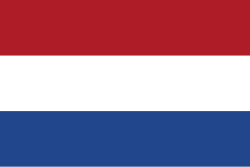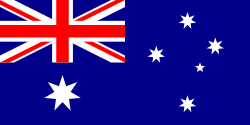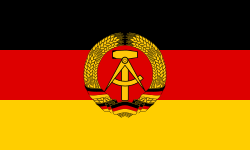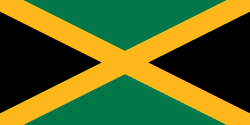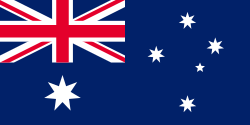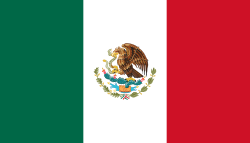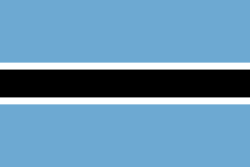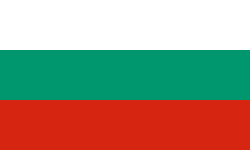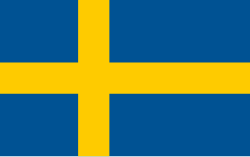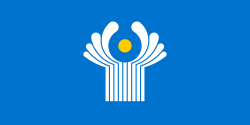Marie-José Pérecová
| Marie-José Pérecová | |
|---|---|
(c) Georges Biard, CC BY-SA 3.0 | |
| Narození | 9. května 1968 (56 let) Basse-Terre |
| Alma mater | École supérieure des sciences économiques et commerciales INSEP |
| Povolání | sprinterka a atletka |
| Ocenění | Šampion šampionů L'Équipe (1996) komandér Řádu čestné legie (2024) |
| Některá data mohou pocházet z datové položky. | |
| Přehled medailí | ||
|---|---|---|
| zlato | LOH 1992 | běh na 400 m |
| zlato | LOH 1996 | běh na 200 m |
| zlato | LOH 1996 | běh na 400 m |
| Mistrovství světa v atletice | ||
| zlato | MS 1991 | běh na 400 m |
| zlato | MS 1995 | běh na 400 m |
| Mistrovství Evropy v atletice | ||
| bronz | ME 1990 | běh na 400 m |
| zlato | ME 1994 | běh na 400 m |
| zlato | ME 1994 | štafeta 4 × 400 m |
| Halové ME v atletice | ||
| zlato | HME 1989 | běh na 200 m |
Marie-José Pérecová (* 9. května 1968 Basse-Terre) je bývalá francouzská atletka, dvojnásobná olympijská vítězka, dvojnásobná mistryně světa a mistryně Evropy v běhu na 400 metrů. Je také olympijskou vítězkou a halovou mistryní Evropy v běhu na 200 metrů.
Pérecová se narodila a vyrostla ve městě Basse-Terre na ostrově Guadeloupe, v 16 letech se přestěhovala do Paříže. Na letních olympijských hrách poprvé reprezentovala v roce 1988, kdy se hry konaly v jihokorejském Soulu.
Úspěchy
Olympijské hry
- LOH 1992, Barcelona - 1. místo 400 m
- LOH 1996, Atlanta - 1. místo 200 m
- LOH 1996, Atlanta - 1. místo 400 m
Mistrovství světa
- 1991, Tokio - 1. místo 400 m
- 1993, Stuttgart - 4. místo 200 m
- 1995, Göteborg - 1. místo 400 m
- 1997, Atény - čtvrtfinále 200 m
Mistrovství Evropy
Halové mistrovství světa
Halové mistrovství Evropy
Osobní rekordy
- 100 m - (10,96 s - 27. července 1991, Dijon)
- 200 m - (21,99 s - 2. července 1993, Villeneuve-d'Ascq) - FR
- 400 m - (48,25 s - 29. července 1996, Atlanta) - FR, OR
- 400 m př. - (53,21 s - 16. srpna 1995, Curych) - FR
Externí odkazy
 Obrázky, zvuky či videa k tématu Marie-José Pérecová na Wikimedia Commons
Obrázky, zvuky či videa k tématu Marie-José Pérecová na Wikimedia Commons - Marie-José Pérecová na stránkách Světové atletiky (anglicky)
- Marie-José Pérecová v databázi Olympedia (anglicky)
Média použitá na této stránce
Olympic Rings without "rims" (gaps between the rings), As used, eg. in the logos of the 2008 and 2016 Olympics. The colour scheme applied here was specified in 2023 guidelines.
Olympic Rings without "rims" (gaps between the rings), As used, eg. in the logos of the 2008 and 2016 Olympics. The colour scheme applied here was specified in 2023 guidelines.
Flag of Second Polish Republic and later People's Republic of Poland in period from March 29, 1928 to March 10, 1980. Red shade used here is HTML "vermilion" #E34234. Proportion 5:8.
Flag of Jamaica. “The sunshine, the land is green, and the people are strong and bold” is the symbolism of the colours of the flag. GOLD represents the natural wealth and beauty of sunlight; GREEN represents hope and agricultural resources; BLACK represents the strength and creativity of the people. The original symbolism, however, was "Hardships there are, but the land is green, and the sun shineth", where BLACK represented the hardships being faced.
The flag of the Dominican Republic has a centered white cross that extends to the edges. This emblem is similar to the flag design and shows a bible, a cross of gold and 6 Dominican flags. There are branches of olive and palm around the shield and above on the ribbon is the motto "Dios,Patria!, Libertad" ("God, Country, Freedom") and to amiable freedom. The blue is said to stand for liberty, red for the fire and blood of the independence struggle and the white cross symbolized that God has not forgotten his people. "Republica Dominicana". The Dominican flag was designed by Juan Pablo Duarte, father of the national Independence of Dominican Republic. The first dominican flag was sewn by a young lady named Concepción Bona, who lived across the street of El Baluarte, monument where the patriots gathered to fight for the independence, the night of February 27th, 1844. Concepción Bona was helped by her first cousin María de Jesús Pina.
Vlajka České republiky. Podoba státní vlajky České republiky je definována zákonem České národní rady č. 3/1993 Sb., o státních symbolech České republiky, přijatým 17. prosince 1992 a který nabyl účinnosti 1. ledna 1993, kdy rozdělením České a Slovenské Federativní republiky vznikla samostatná Česká republika. Vlajka je popsána v § 4 takto: „Státní vlajka České republiky se skládá z horního pruhu bílého a dolního pruhu červeného, mezi něž je vsunut žerďový modrý klín do poloviny délky vlajky. Poměr šířky k její délce je 2 : 3.“
Flag of Australia, when congruence with this colour chart is required (i.e. when a "less bright" version is needed).
See Flag of Australia.svg for main file information.Flag of Senegal
The flag of the Dominican Republic has a centered white cross that extends to the edges. This emblem is similar to the flag design and shows a bible, a cross of gold and 6 Dominican flags. There are branches of olive and palm around the shield and above on the ribbon is the motto "Dios,Patria!, Libertad" ("God, Country, Freedom") and to amiable freedom. The blue is said to stand for liberty, red for the fire and blood of the independence struggle and the white cross symbolized that God has not forgotten his people. "Republica Dominicana". The Dominican flag was designed by Juan Pablo Duarte, father of the national Independence of Dominican Republic. The first dominican flag was sewn by a young lady named Concepción Bona, who lived across the street of El Baluarte, monument where the patriots gathered to fight for the independence, the night of February 27th, 1844. Concepción Bona was helped by her first cousin María de Jesús Pina.
Finská vlajka
(c) Georges Biard, CC BY-SA 3.0
Marie-José Pérec au festival de Cannes


